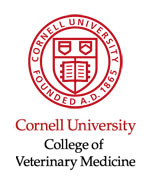2025 (No. 1)
AHEAD Update
Dear AHEAD Colleagues,
Welcome to the latest issue of the AHEAD Update. As always, if you would like to post an item in the next Update, please just send it to us – thanks.
Featured Paper
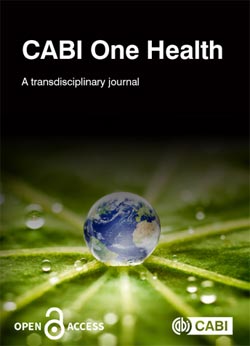
Osofsky, SA et al. (2025) Two Decades of One Health in Action: Enabling Sustainable Wildlife Conservation and Livestock Production in Southern Africa.
CABI One Health
The prevailing veterinary fencing paradigm is rooted in the colonial era, but with impacts on wildlife that have persisted on up to the present. If we fail to help all countries within a given transfrontier conservation area actually co-manage disease threats to the livestock sector that all value highly – culturally, economically, and politically – then how can we expect significant progress in terms of fostering habitat connectivity across international boundaries? When a given country fears diseases they believe or know are across the border, how can we lower the perceived or actual risks of the vision of restoring wildlife migrations through removal of sections of the most environmentally damaging fences? The AHEAD program continues to work on these challenges, with recent progress on sectorally integrative approaches providing reasons for cautious optimism.
Marking our 20th anniversary, the AHEAD team reflects on two decades of One Health collaboration, highlighting that lasting cross-sectoral policy change requires significant time and sustained commitment.
Additional New Resources
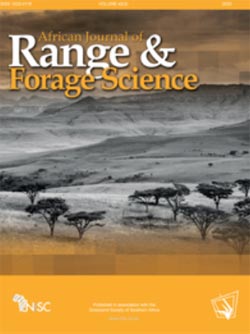
Mudongo, El et al. (2025) Adding Economic and Ecological Value to Communal Pastoralism: Lessons from Implementing a Herding for Health Model in the Okavango Delta, Botswana.
African Journal of Range & Forage Science
A four-year case study evaluates the implementation of Herding for Health in Eretsha, Botswana, where annual cattle losses had exceeded 30%, primarily due to predation, disease, straying, and unknown causes.
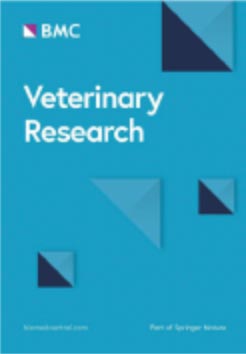
Ploquin, O et al. (2025) Foot and Mouth Disease Dynamics in Multi‑Species Livestock Systems at the Interface of African Protected Areas.
BMC Veterinary Research
This research contributes to understanding of the complex dynamics of FMD transmission in rural areas of Zimbabwe and underscores the importance of tailored surveillance strategies in diverse ecological settings.
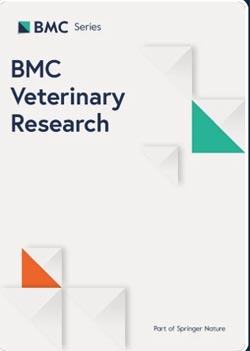
Manso-Silván, L et al. (2025) Review and Comprehensive Analysis of Knowledge, Tools, and Implementation Gaps for the Control of Contagious Bovine Pleuropneumonia.
BMC Veterinary Research
Despite eradication elsewhere, CBPP persists in sub-Saharan Africa. This review examines the disease’s epidemiology, pathogenesis and control, highlighting the principal knowledge gaps and technical needs for eradication.
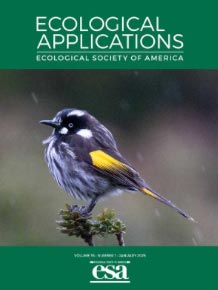
Schwandner, IA et al. (2025) Predicting the Impact of Targeted Fence Removal on Connectivity in a Migratory Ecosystem.
Ecological Applications
Using animal movement data and predictive modeling, researchers demonstrate how and where targeted fence removal can improve connectivity for migratory wildlife in the Greater Masai Mara Ecosystem – an approach that could be used in other landscapes.
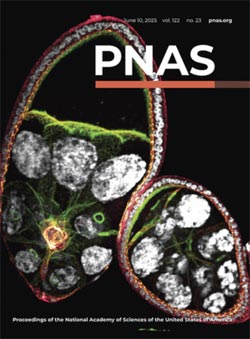
Mellya, RVK et al. (2025) Natural Dispersal is Better than Translocation for Reducing Risks of Inbreeding Depression in Eastern Black Rhinoceros (Diceros bicornis michaeli).
PNAS
Genomic analysis of eastern black rhinoceroses shows that allowing natural dispersal between populations with a long history of inbreeding could be more effective than more expensive long-distance translocations, reinforcing the importance of connectivity.
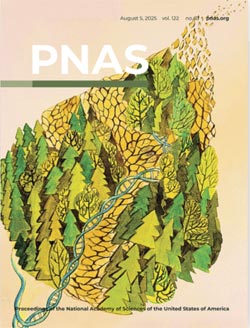
Naidoo, R et al. (2025) From Science to Impact: Conserving Ecological Connectivity in Large Conservation Landscapes.
PNAS
Drawing on case studies across four continents, researchers outline a theory of change for bridging the gap between connectivity science and on-the-ground conservation impact.
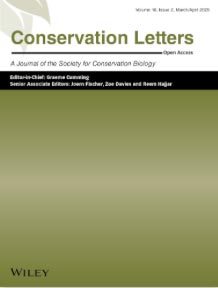
Lala, F & Bump, JK (2025) Megaherbivores and Mega-Infrastructure in East Africa.
Conservation Letters
Rapid infrastructure expansion across East Africa poses a major risk to key habitats for elephant, giraffe, rhino, and hippo. Scalable solutions exist in some East African countries; however, a unified regional policy remains essential.
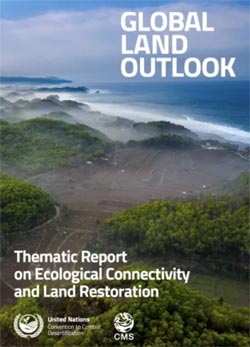
UNCCD & CMS (2025) Global Land Outlook Thematic Report on Ecological Connectivity and Land Restoration.
UNCCD, CMS
Life on our planet depends on ecological connectivity - not only for nature, but for people. This report shines a spotlight on the linkages between land degradation and connectivity loss and the critical importance of integrated solutions.
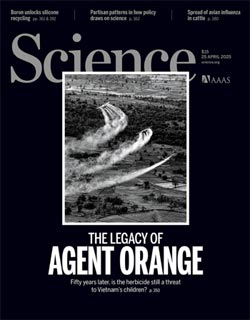
Brodie, JF et al. (2025) A Well-Connected Earth: The Science and Conservation of Organismal Movement.
Science
The authors review efforts to define and measure ecological connectivity, introducing a definition focused on movement and ecological function, and calling for coordinated global action to sustain vital landscape linkages.
Upcoming Meeting
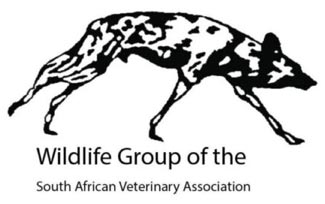
SAVA Wildlife Congress
12-14 Mar 2026, Muldersdrift, South Africa & virtual
The theme for the three-day congress is biosecurity.
Again, if you have items for the next AHEAD Update, please just let us know – thanks.
Yours in One Health,
Steve & Shirley
Steve Osofsky, DVM
Cornell University, College of Veterinary Medicine
Jay Hyman Professor of Wildlife Health & Health Policy
Director, AHEAD Program
Director, Cornell K. Lisa Yang Center for Wildlife Health
s.osofsky@cornell.edu
Shirley Atkinson, MSc
Cornell University, College of Veterinary Medicine
AHEAD Program Coordinator
Associate Director, Cornell K. Lisa Yang Center for Wildlife Health
s.atkinson@cornell.edu
What is AHEAD?
AHEAD works to create enabling environments that allow different and often competing sectors to literally come to the same table and find collaborative ways forward to address challenges at the interface of wildlife health, livestock health, and human health and livelihoods. We convene stakeholders and provide technical support and resources for projects locally identified as priorities. AHEAD, one of the first applied One Health programs, recognizes the need to look at health, disease, and the environment together, while always taking a given region's socioeconomic, political, and policy context into account.
|
|
 |
|
|
|
New 2024 KAZA Disease Risk Assessment Fencing Analysis |
Veterinary Fences in the KAZA TFCA:
Assessment of Livestock Disease Risks of Potential Removal of Specific Fence
Sections, with an Emphasis on the Botswana-Namibia Border |
|
| Rosen, L. E., Amuthenu, N. S., Atkinson, S. J., Babayani, N. D., Elago, S. A. T., Hikufe, E., Mafonko, B. R., Mbeha, B., Mokopasetso, M., Motshegwa, K., Nkgowe, C., Penrith M-L., Ramokwena, E. M., Ramsden, N., Segale, K., Sharpe, J., Shilongo, A., Shoombe, K. K., Shuro, T., Thololwane, O. I., van Rooyen, J. & Osofsky, S. A. (2024). Veterinary Fences in the KAZA TFCA: Assessment of Livestock Disease Risks of Potential Removal of Specific Fence Sections, with an Emphasis on the Botswana-Namibia Border. AHEAD Programme, Cornell University on behalf of the KAZA Animal Health Sub Working Group. 300 pp. |
|
AHEAD
Book |
|
Osofsky,
S.A., Cleaveland, S., Karesh, W.B., Kock, M.D., Nyhus,
P.J., Starr, L., and A. Yang, (eds.). 2005. Conservation
and Development Interventions at the Wildlife/Livestock
Interface: Implications for Wildlife, Livestock and
Human Health. IUCN, Gland, Switzerland and Cambridge,
UK. xxxiii and 220 pp.
Downloadable PDFs of
whole book/each section available by visiting the AHEAD
Launch Proceedings page. Hard copies can be ordered
by e-mailing books@iucn.org |
|
|
Our video clips use the Quicktime
plugin.
Get it free here! |
|
|
What
is AHEAD?
Animal & Human Health for the Environment
And Development was launched at the 2003 IUCN World Parks Congress
in Durban, South Africa. By assembling a ‘dream team’ of
veterinarians, ecologists, biologists, social and economic
scientists, agriculturists, wildlife managers, public health
specialists and others from across East and southern Africa,
we were fortunate to have tapped into some of the most innovative
conservation and development thinking on the African continent-
and AHEAD was born. Since then, a range of programs addressing
conservation, health, and concomitant development challenges
have been launched with the support of a growing list of implementing
partners and donors who see the intrinsic value of the One
World, One Health approach.
AHEAD is a convening, facilitative mechanism, working to create
enabling environments that allow different and often competing
sectors to literally come to the same table and find collaborative
ways forward to address challenges at the interface of wildlife
health, livestock health, and human health and livelihoods.
We convene stakeholders, help delineate conceptual frameworks
to underpin planning, management and research, and provide
technical support and resources for projects stakeholders identify
as priorities. AHEAD recognizes the need to look at health
and disease not in isolation but within a given region's socioeconomic
and environmental context.
In short, AHEAD recognizes the importance
of animal and human health to both conservation and development
interests. Around the world, domestic and wild animals are
coming into ever-more-intimate contact, and without adequate
scientific knowledge and planning, the consequences can be
detrimental on one or both sides of the proverbial fence. But
armed with the tools that the health sciences provide, conservation
and development objectives have a much greater chance of being
realized – particularly
at the critical wildlife/livestock interface, where conservation
and agricultural interests meet head-on. AHEAD efforts focus
on several themes of critical importance to the future of animal
agriculture, human health, and wildlife health (including zoonoses,
competition over grazing and water resources, disease mitigation,
local and global food security, and other potential sources
of conflict related to land-use decision-making in the face
of resource limitations). Historically, neither governments,
nongovernmental organizations, the aid community, nor academia
have holistically addressed the landscape-level nexus represented
by the triangle of wildlife health, domestic animal health,
and human health and livelihoods as underpinned by environmental
stewardship.
|
|










